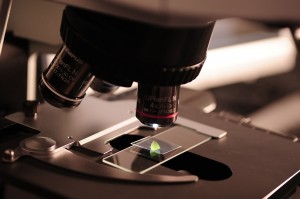Cord blood preservation or cord blood banking is a far simpler process as compared to producing stem cells from embryos. There is no destruction of embryos involved so there are no ethical or religious issues associated with saving cord blood. Let us take an overview of how baby cord blood is preserved.
Ideally, the process of saving the cord blood should be completed within fifteen minutes of the umbilical cord being cut. It can be readily seen that there is a process prior to this, which involves – among other things – recording family medical history, medical tests and informed consent or approval. Therefore, the ideal time to think about stem cell or cord blood registry is when you go for antenatal checks. Speak to your doctor for information on saved cord blood and research potential cord blood banks.
After the blood is collected, it needs to be screened for a number of diseases before it is pronounced fit for storage. These include tests for HIV, hepatitis etc. Once these tests are cleared, the blood is separated into its basic constituents – the red blood cells, the white blood cells and the blood plasma. It is the white blood cells that contain the magic of the cord cells. Once these are separated, the cells are frozen using liquid nitrogen at minus 200 degrees! At these temperatures, the cord blood can be stored indefinitely.
Cord blood banks have set up elaborate mechanisms to ensure that the process of collection and transfer to their storage facilities are totally looked after. They take very elaborate precautions to ensure that the transfer is safe, and the sample is not mixed with other samples. In any case, after the required tests are completed, if for any reason the cord blood is not found suitable for storage, there is a prompt relay of information and a refund of the fees paid to the cord blood bank forumbilical stem cell storage.
There are a few things you could check or confirm before you select a cord blood bank. Select a service that stores the blood in several vials or bags rather than in one. This allows you to use a portion of it at in one instance. As a result, potentially, several family members can benefit from baby cord blood. Many people also donate or sell the baby cord blood to needy patients after a few years when they feel their own child has grown up well. Taken this way, you could even recover the costs you have incurred in your baby’s cord blood preservation.
- private cord blood banking in Osceola IA
- cord blood stem cells in Chester UT
- cord blood donation in Roslyn WA
- cord blood storage in Carlock IL
- private cord blood banks in Nottawa MI
- cord blood umbilical blood in Rock Hill SC
- public cord blood donation banks in Clifton Park NY
- cord blood preservation in Kirtland Afb NM
- cord blood banking prices in Lonaconing MD
- cord blood storage companies in Milam WV
- cost of cord blood banking in Lancing TN
- umbilical cord blood stem cell in Curtis AR
- cord blood solutions in Blackfoot ID
- cord blood gas in Wrights IL
- cord blood banking in Pine Island NY
- cord blood transplant in Gully MN
- public cord blood banking in West Van Lear KY
- umbilical cord blood stem cells in Ransom KY
- cord blood embryonic stem cells in Osceola IN
- cord blood donation hospitals in Gadsden TN
- cord blood banking companies in Hockessin DE
- cord blood storage cost in Graham NC
- cord blood registry in Salyer CA
- types of cord blood banks in Dickinson TX
- umbilical cord blood banking in Marysville WA
- umbilical stem cell storage in Sikes LA
- cord blood center in Willow Creek CA
- process of cord blood banking in Evansville IL
